 For Admission : +91 7448883500
For Admission : +91 7448883500
 admissions@sivarajcolleges.in
admissions@sivarajcolleges.in
 For Admission : +91 7448883500
For Admission : +91 7448883500
 admissions@sivarajcolleges.in
admissions@sivarajcolleges.in
Biochemistry or biological chemistry is the study of chemical processes within and relating to living organisms. A sub-discipline of both chemistry and biology, biochemistry may be divided into three fields: structural biology, enzymology and metabolism. Over the last decades of the 20th century, biochemistry has become successful at explaining living processes through these three disciplines. Almost all areas of the life sciences are being uncovered and developed through biochemical methodology and research. Biochemistry focuses on understanding the chemical basis which allows biological molecules to give rise to the processes that occur within living cells and between cells, in turn relating greatly to the understanding of tissues and organs, as well as organism structure and function.
Biochemistry is closely related to molecular biology, which is the study of the molecular mechanisms of biological phenomena. Much of biochemistry deals with the structures, bonding, functions, and interactions of biological macromolecules, such as proteins, nucleic acids, carbohydrates, and lipids. They provide the structure of cells and perform many of the functions associated with life. The chemistry of the cell also depends upon the reactions of small molecules and ions. These can be inorganic (for example, water and metal ions) or organic (for example, the amino acids, which are used to synthesize proteins).
The mechanisms used by cells to harness energy from their environment via chemical reactions are known as metabolism. The findings of biochemistry are applied primarily in medicine, nutrition.
In medicine, biochemists investigate the causes and cures of diseases. Nutrition studies how to maintain health and wellness and also the effects of nutritional deficiencies.
Yoga is a technique which unites the body, mind and spirit. Yoga relieves you from stress and tension. It is stress that causes weakness, anger, jealousy and all the negative emotions. When you get rid of stress using breathing techniques, meditation and some simple exercises, it helps your body and mind and creates a sense of well-being and happiness from inside.
Yoga is a word derived from the Sanskrit word ‘yuj’ which means ‘to unite or integrate’, yoga is a 5,000-year-old Indian body of knowledge. Yoga is all about harmonizing the body with the mind and breath through the means of various pranayamas, yoga asanas (yoga poses) and meditation.
Nature cure, also known as naturopathy or natural medicine, is a holistic approach to health and well-being that emphasizes the use of natural remedies and therapies to stimulate the body's self-healing mechanisms. It is based on the belief that the human body has an inherent ability to heal itself when given the right conditions, and that nature provides the necessary resources for maintaining and restoring health.
The philosophy of nature cure is rooted in several key principles:
1. Nature's Healing Power: Nature cure recognizes the body's innate ability to heal itself. It views symptoms of illness as expressions of the body's attempt to restore balance and eliminate disease-causing factors. By supporting and enhancing the body's natural healing processes, nature cure aims to facilitate recovery and promote overall well-being.
2. Holistic Approach: Nature cure considers the individual as a whole, encompassing physical, mental, emotional, and spiritual aspects. It emphasizes the interconnectedness of these dimensions and their influence on health. Rather than treating isolated symptoms, nature cure seeks to address the underlying causes of disease and promote comprehensive wellbeing.
3. Vitalism: Nature cure is influenced by vitalistic principles, which suggest that life is more than just the sum of its physical components. It recognizes the presence of a vital force or energy within the body that maintains health and facilitates healing. Nature cure therapies aim to restore and enhance the flow of this vital energy.
4. Prevention and Health Promotion: Nature cure places a strong emphasis on disease prevention and health promotion. It recognizes the importance of a healthy lifestyle, including proper nutrition, regular exercise, stress management, and environmental factors, in maintaining optimal health. By addressing the root causes of illness and promoting healthy habits, nature cure aims to prevent diseases before they occur.
5. Individualized Treatment: Nature cure acknowledges that each person is unique and requires personalized treatment. It recognizes that what works for one individual may not work for another. Therefore, nature cure practitioners assess the individual's specific needs and develop treatment plans tailored to their unique circumstances, taking into account their physical, mental, and emotional characteristics.
6. Non-Invasive and Natural Therapies: Nature cure emphasizes the use of non-invasive and natural therapies to stimulate the body's healing mechanisms. These may include dietary adjustments, herbal medicine, hydrotherapy (the use of water in various forms), physical therapies, such as massage and exercise, and lifestyle modifications. Nature cure therapies aim to work in harmony with the body's natural processes, minimizing the use of pharmaceutical drugs or invasive procedures.
7. Education and Self-Responsibility: Nature cure encourages individuals to take an active
role in their health and well-being. It promotes education and self-awareness, empowering
individuals to make informed decisions about their lifestyle choices and health practices.
Nature cure practitioners often serve as educators, teaching individuals about healthy living,
disease prevention, and self-care.
Overall, the philosophy of nature cure centers around the belief that the body possesses the
innate capacity to heal itself when provided with the right conditions and support. By
embracing natural remedies, adopting a healthy lifestyle, and addressing the underlying
causes of illness, nature cure aims to restore balance and promote optimal well-being.
Pathology is the Science of study and diagnosis of disease through examination of organs, tissues, body fluids, and whole bodies (autopsies). The subject comprises the study of gross and microscopic changes of the diseased tissue or organ which enable to treating the disease.
Early systematic human dissections were carried out by the Ancient Greek physicians Herophilus of Chalcedon and Erasistratus of Chios in the early part of the third century BC. The first physician known to have made postmortem dissections was the Arabian physician Avenzoar (1091–1161). Rudolf Virchow (1821–1902) is generally recognized to be the father of modern pathology.
Pathology broadly divides two main categories of general and systemic pathology for better understanding basic concepts of pathology for students.

General pathology is a broad and complex scientific field which seeks to understand the mechanisms of injury to cells and tissues, as well as the body’s means of responding to and repairing injury. It forms the foundation of pathology, the application of this knowledge to diagnose diseases in humans and animals. Systemic pathology is study of diseases in structurally and functionally by system wise (i.e.) cardiovascular system, respiratory system etc.
Medical microbiology, the large subset of microbiology that is applied to medicine, is a branch of medical science concerned with the Prevention, Diagnosis and Treatment of infectious diseases. The microbes and the branch of microbiology are the most studied due to their great importance to medicine. In addition, this field of science studies various clinical applications of microbes for the improvement of health. There are four kinds of microorganisms that cause infectious disease: bacteria, fungi, parasites and viruses.

Yoga and physical culture 1 includes the study of various physiological and biochemical effects of asana, pranayama, Mudra, shatkarma and bandha.
it also includes,

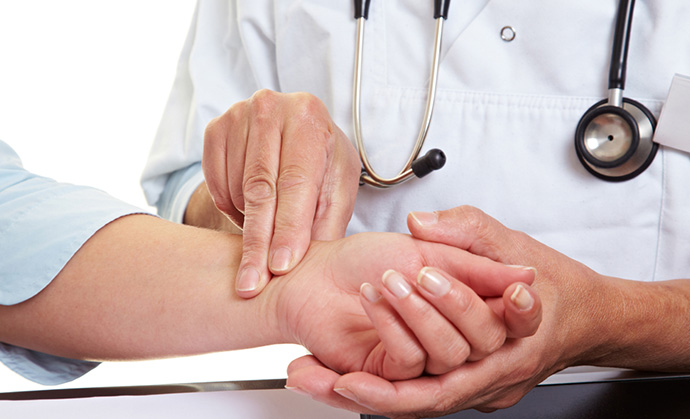
Modern diagnostic methods deal with the process of determining the nature of disease with high accuracy and distinguishing the conditions. This approach is done with the help of numerous modalities such as Physical Examination, Anthropometric data, Body signs, symptoms, Dietary Assessment and Pathology testing, imaging techniques, laboratory investigation thus to provide early and proper treatment
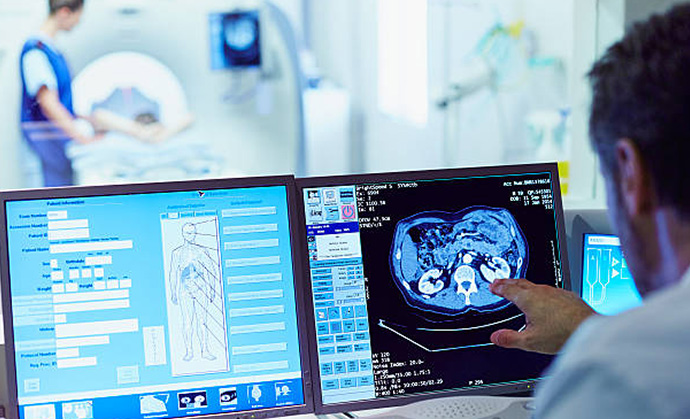
I honored to welcome you to the Department of Pharmacology in Sivaraj Naturopathy and Yoga Medical College .Pharmacology involves the scientific study of medicine and also the description of the drugs. A pharmacologist plays an excellent role in drug discovery and in clinical research. The department offers training in pharmacology and toxicology to undergraduate students, who may subsequently be involved in research, regulatory requirements for conducting clinical trials and administrative careers in academic, industrial and healthcare systems.
Knowledge of pharmacology serves the aim of basic human health care with the assistance of educational charts, models and training in prescription skills. The department has well-equipped labs for both U.G teaching and research. The department includes a well-furnished demo room with an audiovisual facility and library.

Pharmacology plays a significant role in the Naturopathy and Yoga system of medicine in order to rule out patient conditions, comprehend drug reactions, dosage and integration, dosage maintenance, and learn how to tapper the medication in conjunction with Naturopathy and yoga method of treatment.
Forensic medicine mainly deals with examination and assessment of individuals who have been—or are suspected to have been—injured or killed by external influence such as trauma or intoxication, but also of individuals who are suspected of having injured another person.
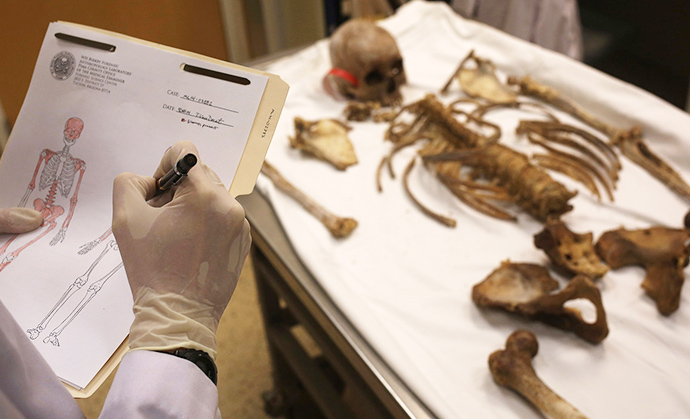
The COMMUNITY MEDICINE art and science of application of technical knowledge and skills to the delivery of healthcare to a given community, designed in collaboration with related professions as well as human and social sciences on the one hand, and community on the other.”
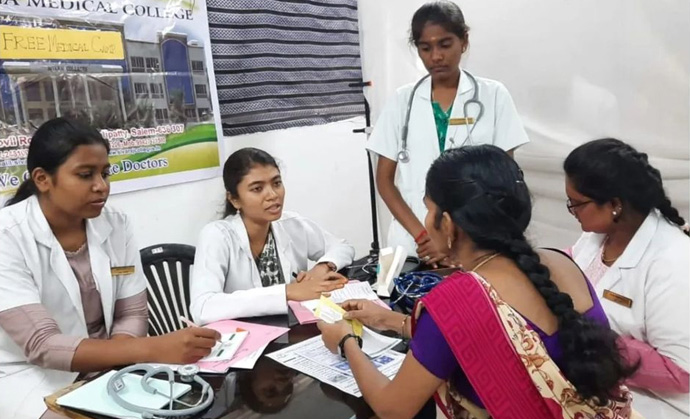
Community medicine is the field concerned with the study of health and disease in the defined community or group. Its goal is to identify the health problems and needs of people (community diagnosis) and to plan, implement and evaluate the effectiveness of health care system.
Find the story that you want to tell. Know what you want to Learn, Think, Write, Follow and Asses. Then implement on someone , help them how to hand and make choices. Detox their mental health and social well being. So know yourself on studying Psychology and Psychiatry
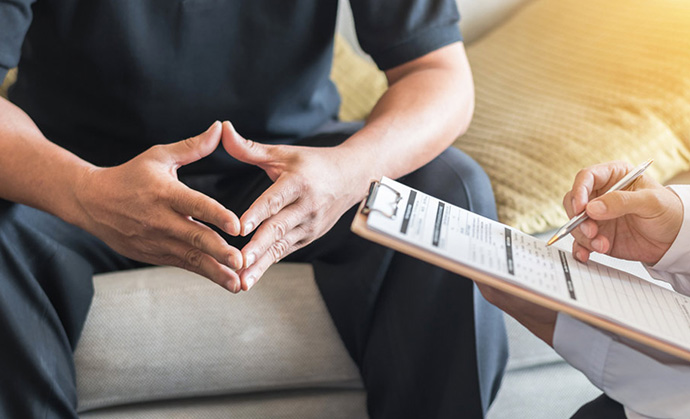
A branch of medicine that specializes in the care of women during pregnancy and childbirth and in the diagnosis and treatment of diseases of the female reproductive organs. It also specializes in other women’s health issues, such as menopause, hormone problems, contraception (birth control), and infertility.
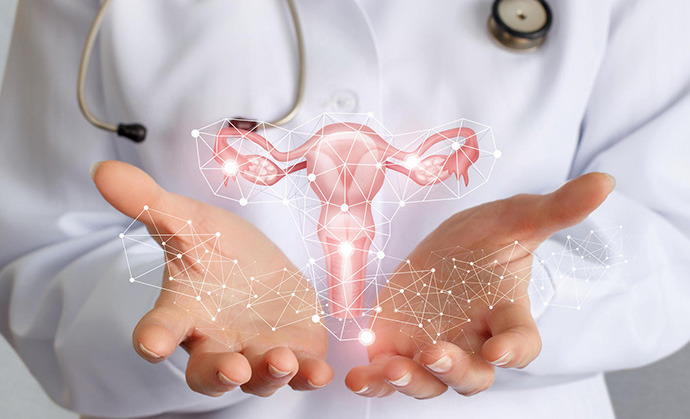
Yoga and Physical Culture 2 includes a Study about various Ancient texts like Hatha Yoga Pradipika, Gheranda Samhita, Siva Samhita and Patanjali Yoga Sutras (Samadhi Pada, Sadhanapada , Vibhuti Pada & Kaivalya Pada), Psychic Physiology of Yoga i.e. regarding Chakras, Swara Yoga.
Also explains Basic Stretching Practices for over all Body parts, Specific Eye Exercises for Eye Sight improvement.

To Vanish out the Stress and its effects the Special Techniques were persuaded. They are Stress Management for Excessive Tension (SMET), Pranic Energization Technique (PET), Mind Sound Resonance Technique (MSRT), Yoga Nidra Etc.
Good nutrition is essential for good health.
To define social, economic, cultural and environmental influences on food access and dietary choices.
To evaluate the ways of interactions of the food which influence human health and nutrition.
To demonstrate an understanding of public health.
To interpret and apply the nutrition concepts to evaluate and improve the nutritional health of communities.
Recently there has been a shift in universal trend from the synthetic medicine to herbal medicine, which we say “RETURN TO NATURE”. Medicine has held an important historical presence for thousands of years. Herbology is the use of natural herbal plants, barks, roots, flowers, stem and it’s extracts to medically treat a person from disease also to enhance the general health and well being.
Nutrition is the study of food and how it affects the human health and growth. Food is the vital part as it provides the energy needed for growth, repair and all our daily activities. Balanced nutrition is needed for healthy living. Nutrition focus on how people can make dietary choices to reduce the risk of disease. Proper balance and minor changes in the diet can help to prevent and control many health problems.
Massage is the manual soft tissue manipulation to enhance the health and well being. The massage therapy is the integrative medicine, it involves by treat the patient’s by scientific, systematic, manual and mechanical manipulation of muscles and soft tissues of the body for the purpose of normalizing those tissue.
In massage therapy includes rubbing, kneading or tapping of the parts of the body , it helps to aid the circulation, relax the muscles, reduce pain ,promote healing and reduce stress .

Aromatherapy refers to the use of aroma or essential oil in holistic healing to improve health and emotional well being of the individual.
The aroma oils are most often used by inhalation or by applying diluted form to the skin, water immersion to stimulate desired response.
The aromatherapy works by ,the smell act on the limbic system of the brain that controls our emotions.
Yoga is a Science of right living. The Aim of Yoga is to unite the individual consciousness to the cosmic consciousness. Yoga Therapy is a holistic and Integrated approach which balances and harmonises the body, mind and emotions.
This can be done by practicing
Yoga Therapy is a Systematic and Scientific Therapy which creates an self awareness that brings about the connection between the body and mind and help to understand the impact of one above the another.

Human body is composed of five layers or sheaths covering the body. This concept is known as Pancha Kosha Theory. These layers range from gross to subtle and interlinked with each other. If any one of these layer are affected it will affect the others.
For a Good Health of an individual all these five sheaths of the body has to maintain a good condition. It is important to strengthen and awaken these kosha's as it balances the Physical, Psychological and Spiritual self.
In Yoga Therapy the Healing involves the movement of Vital forces in the system. Every illness involves a certain level of energy blockage. By promoting the flow of Prana or Vital force, Yoga combats those blockages, restoring the basic condition of Health.
Yoga Therapy addresses many Physical Health and Mental Health issues and combination of both i.e., Psycho Somatic problems.
It has been effectively used to treat Obesity, Hypertension, Diabetes Mellitus, Bronchial Asthma, Sinusitis, Arthritis, Back Pain, Cervical and Lumbar Spondylosis, Heart Conditions, PCOD, Menstrual Disorders, Migraine Headaches, Chronic Fatigue, Multiple Sclerosis and Side effects of Chemotherapy.
Hydrotherapy is one of the naturopathic treatment modality used widely, it is the external or internal use of water in any forms for revitalize, maintain , restore health or treatment of various disease with different temperatures, pressure, duration and site. Hydrotherapy is a form of physical medicine using the therapeutic applications of water. Any activities performed in water to assist in rehabilitation and recover from various serious injuries.

Naturopaths believed that Hydrotherapy not only effect on vasodilatation and vasoconstriction but also involved in affecting the quality of blood through detoxification. The positive effects of Hydrotherapy were experienced on physical function, energy, sleep, cognitive function, ability to work any participate in daily life. People with several medical conditions can benefit from using water in different forms and at different temperatures to restore health.
Fasting and Dietetics deals with modification of food in a healthy manner. Fasting is willing abstinence from food inclusive of any drink for a period of time adopting certain regulations. Fasting has been rehearsed from time old by humans. Food is the primary aim of earlier man and food plays a major even in day today activities.
Fasting is also to cleanse both body and mind. It guides us to plan diet according to their health issues. In the field of medicine a fasting and diet restriction plays a major role to control disease.

Chromo therapy is the use of the visible spectrum, or color light, to heal the physical, mental and spiritual energy imbalance that tends to lead to disease. It is one of the most holistic and simple methods to cure illness. This healing modality does not require you to consume anything, nor does it require putting anything on your body like an ointment. You simply lay or sit under the desired color.
Magneto Therapy is also called as magnetic field therapy. It is a alternative medical practice that used static magnet to relieve symptoms of pain and improve health.
Helio means sun. Exposing of sun light by different methods that relieve pain and improve health. Sun is the natural medicine for all living organisms. It is also called as photo therapy.
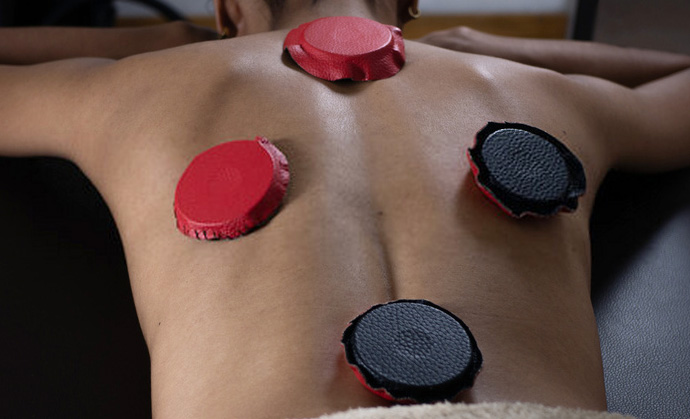
Physiotherapy and physical rehabilitation is a treatment of injury, disease or disfigurement that uses variety of techniques rather than by surgery or medicine to help your muscles and joints work perfectly, and to maintain and restore physical strength, cognition and mobility with maximized results. This therapy helps to speed up the mending process, reduces pain/stiffness and improves mobility
Acupuncture involves the insertion of very thin needles through your skin at strategic points on your body. A key component of traditional Chinese medicine, acupuncture is most commonly used to treat pain. Increasingly, it is being used for overall wellness, including stress management.

Acupressure is a form of alternative medicine that applies pressure to different parts of the body.
Acupressure can help reduce muscle tension, relieve pain, nausea, anxiety, insomnia etc...
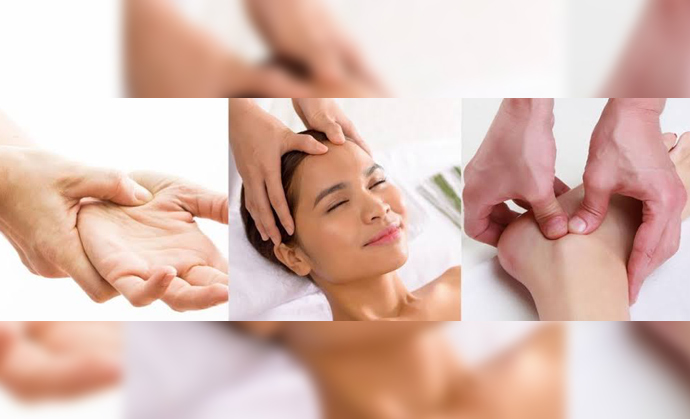
Reflexology is based on the principle that there is a connection between the nerve endings in the feet and palm and the organs of the body
Reflexology triggers relaxation, resulting in reduced levels of stress, tension and also helpful in increasing blood flow and circulation
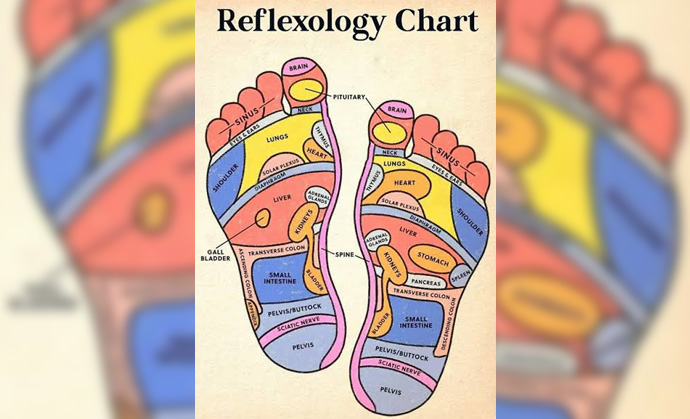
Reiki means universal energy and is a Japanese energy healing method to promote overall well being and relaxation.
Pranic healing is an ancient art and science of energy healing that utilizes our life energy to heal the whole physical body it uses the knowledge of the energy body for physical mental and spiritual will being.
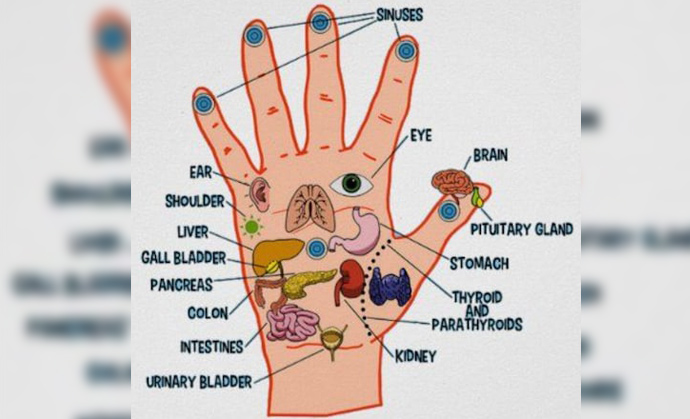
The subject is introducing the principles of medicine, basic principles of surgery, emergency medicine and first aid to students. The students are well trained for basic life support in emergency life threatening situations, prioritize casualties and safely evacuate casualties. The students are exposed to basic surgery, general medical practice, in hospital during the course curriculum
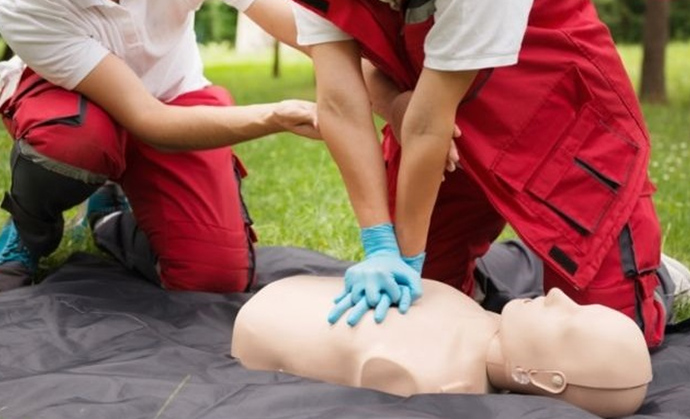
Hospital Management is the process where healthcare providers effectively and efficiently administer everything from patient registration to appointment scheduling, document management, consultation management, lab management, drug safety, report generation, staff management, outpatient management, and so much more.
Good hospital management can be the difference between a well-maintained and operated hospital and a chaotic environment where the quality of patient care suffers.
In every health care setting, including hospitals, coordination is the soul of hospital management.. Hospital management relates to all aspects of a hospital; a coordination of all elements of a hospital. This may range from patient care to record keeping to inventory of medicines and cleanliness.
The system integrates all information and data related to doctors, patients, staff, and departments and provides a way to securely and seamlessly streamline processes and care.
